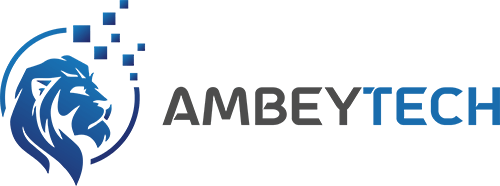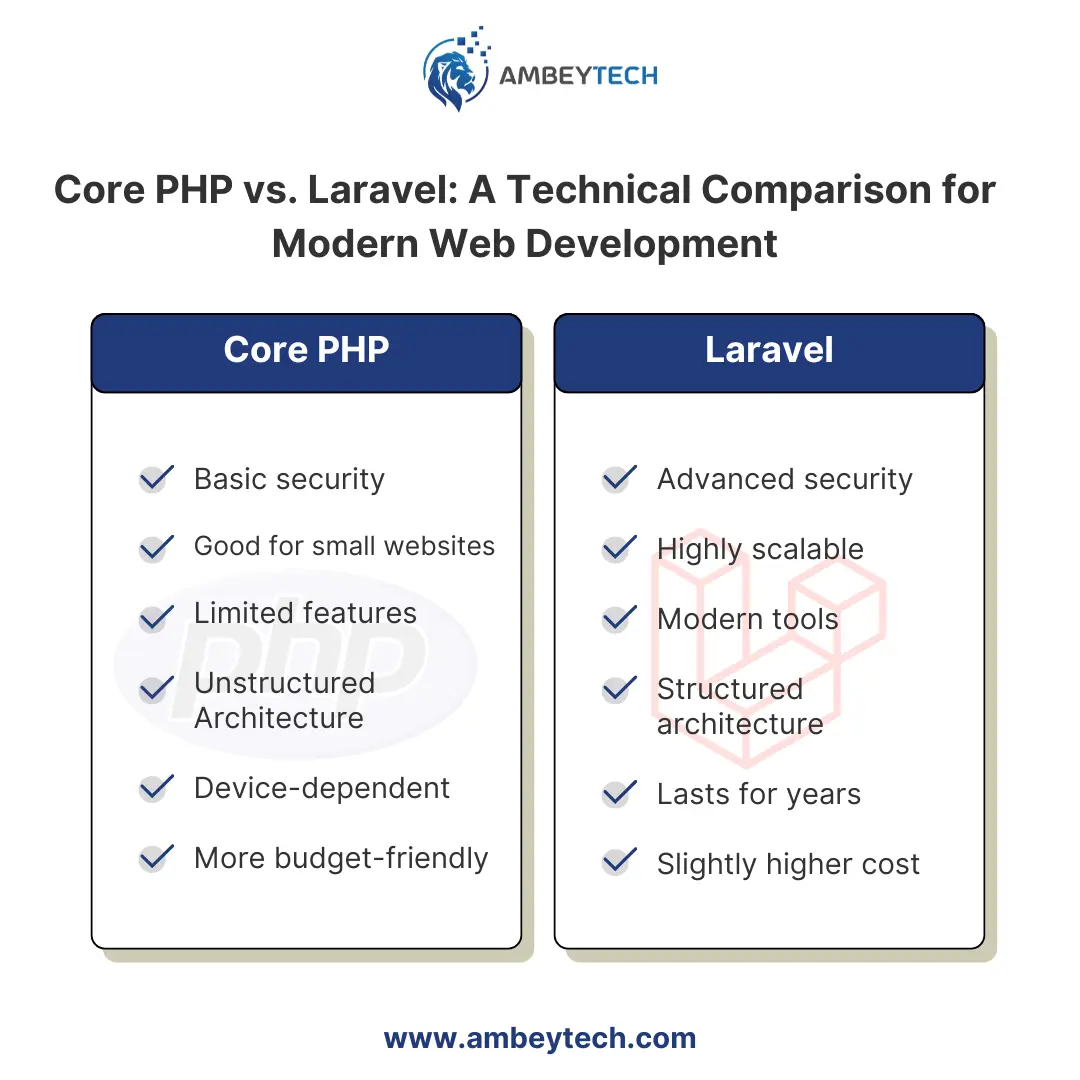-
Development Speed & Efficiency
- Core PHP → Requires writing everything from scratch (slower, more coding effort).
- Laravel → Built-in features (auth, routing, security, database ORM) → faster & structured development.
-
Security
- Core PHP → Basic security, depends on developer’s coding.
- Laravel → Advanced in-built security (CSRF protection, SQL injection prevention, password hashing).
-
Scalability & Future Growth
- Core PHP → Good for small/simple websites, but limited flexibility for large projects.
- Laravel → Highly scalable, suitable for complex projects, multi-user systems and future upgrades.
-
Maintainability
- Core PHP → Code can become messy over time (harder to maintain).
- Laravel → Clean & structured MVC architecture (easy to manage & update).
-
Features & Extensions
- Core PHP → Limited features, extra work needed for common functions (login, mail, APIs).
- Laravel → Rich ecosystem with packages, ready-to-use modules, API integration and modern tools.
-
Performance Optimization
- Core PHP → Basic caching, manual optimization needed.
- Laravel → In-built caching, queue management, optimized for high performance.
-
Cost
- Core PHP → More budget-friendly for simple/static websites.
- Laravel → Slightly higher cost but provides advanced features & long-term value.
✅ Simple way to present in quotation:
- Core PHP → Suitable for small/simple websites, quick & cost-effective.
- Laravel → Suitable for professional, scalable, and secure websites with advanced features.








